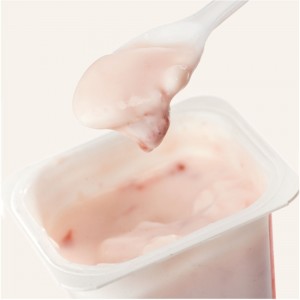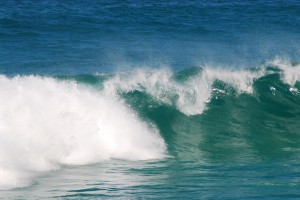According to Douw Steyn, Sustainability Director at Plastics|SA, the primary goal of the Operation Clean Sweep campaign is to stop plastic pellets, flakes and powder used in the plastics industry, from reaching the ocean.
 “We, < as the plastics industry, produce the pellets and flakes used to manufacture plastic bags, bottles and other plastic products. When these micro-plastics are spilled during the manufacturing process, they are swept into drains from where they enter the sewerage system and eventually end up in rivers and ultimately the ocean.
These pellets are smaller than a sunflower seed in length, but wider and are therefore not easy to pick up during regular beach clean-ups. As a result, they are ingested by turtles, birds and marine life," Steyn explains.
Mark Liptrot, Sustainability Manager at the packaging company, Constantia Afripak, said the extended effect of plastics on the ocean is a growing problem as micro-plastics attract chemical pollutants that are ingested by marine life, which, in turn, is eaten by other marine animals.
“It is where we use it, how we use it, and what we do with the plastic product once we are done with it that is important. To address this problem and offer a workable solution, Plastics|SA launched “Operation Clean Sweep” - a worldwide drive aimed at reducing the amount of plastic pellets that end up in rivers and ultimately in the ocean”, Steyn said.
He added that the plastics industry as a whole had a role to play - from the producers and importers of raw materials pellets and flakes, to the converters and manufacturers of plastic products, as well as the recycling companies.
"Our goal is to achieve zero pellet, flake, and powder loss. Whilst it might seem to be an ambitious target, we believe it is possible through containment and the implementation of good housekeeping practices,” he said.
“We, < as the plastics industry, produce the pellets and flakes used to manufacture plastic bags, bottles and other plastic products. When these micro-plastics are spilled during the manufacturing process, they are swept into drains from where they enter the sewerage system and eventually end up in rivers and ultimately the ocean.
These pellets are smaller than a sunflower seed in length, but wider and are therefore not easy to pick up during regular beach clean-ups. As a result, they are ingested by turtles, birds and marine life," Steyn explains.
Mark Liptrot, Sustainability Manager at the packaging company, Constantia Afripak, said the extended effect of plastics on the ocean is a growing problem as micro-plastics attract chemical pollutants that are ingested by marine life, which, in turn, is eaten by other marine animals.
“It is where we use it, how we use it, and what we do with the plastic product once we are done with it that is important. To address this problem and offer a workable solution, Plastics|SA launched “Operation Clean Sweep” - a worldwide drive aimed at reducing the amount of plastic pellets that end up in rivers and ultimately in the ocean”, Steyn said.
He added that the plastics industry as a whole had a role to play - from the producers and importers of raw materials pellets and flakes, to the converters and manufacturers of plastic products, as well as the recycling companies.
"Our goal is to achieve zero pellet, flake, and powder loss. Whilst it might seem to be an ambitious target, we believe it is possible through containment and the implementation of good housekeeping practices,” he said.
 Catherine Constantinides, head of Miss Earth South Africa endorsed Operation Clean Sweep. “To help highlight the importance of clean oceans, Miss Earth SA ambassadors took part in 100 beach clean-ups across the country. But it’s not just cleaning up that’s important. Educating and creating awareness are equally necessary. If we don’t educate, we will be doing clean-ups for the next 20 years of World Ocean Day.
Catherine Constantinides, head of Miss Earth South Africa endorsed Operation Clean Sweep. “To help highlight the importance of clean oceans, Miss Earth SA ambassadors took part in 100 beach clean-ups across the country. But it’s not just cleaning up that’s important. Educating and creating awareness are equally necessary. If we don’t educate, we will be doing clean-ups for the next 20 years of World Ocean Day.
We are appealing to retailers and the public at large to realise that they too have a vital role to play in ensuring that plastic products and waste do not end up polluting the environment,” Constantinides implored.